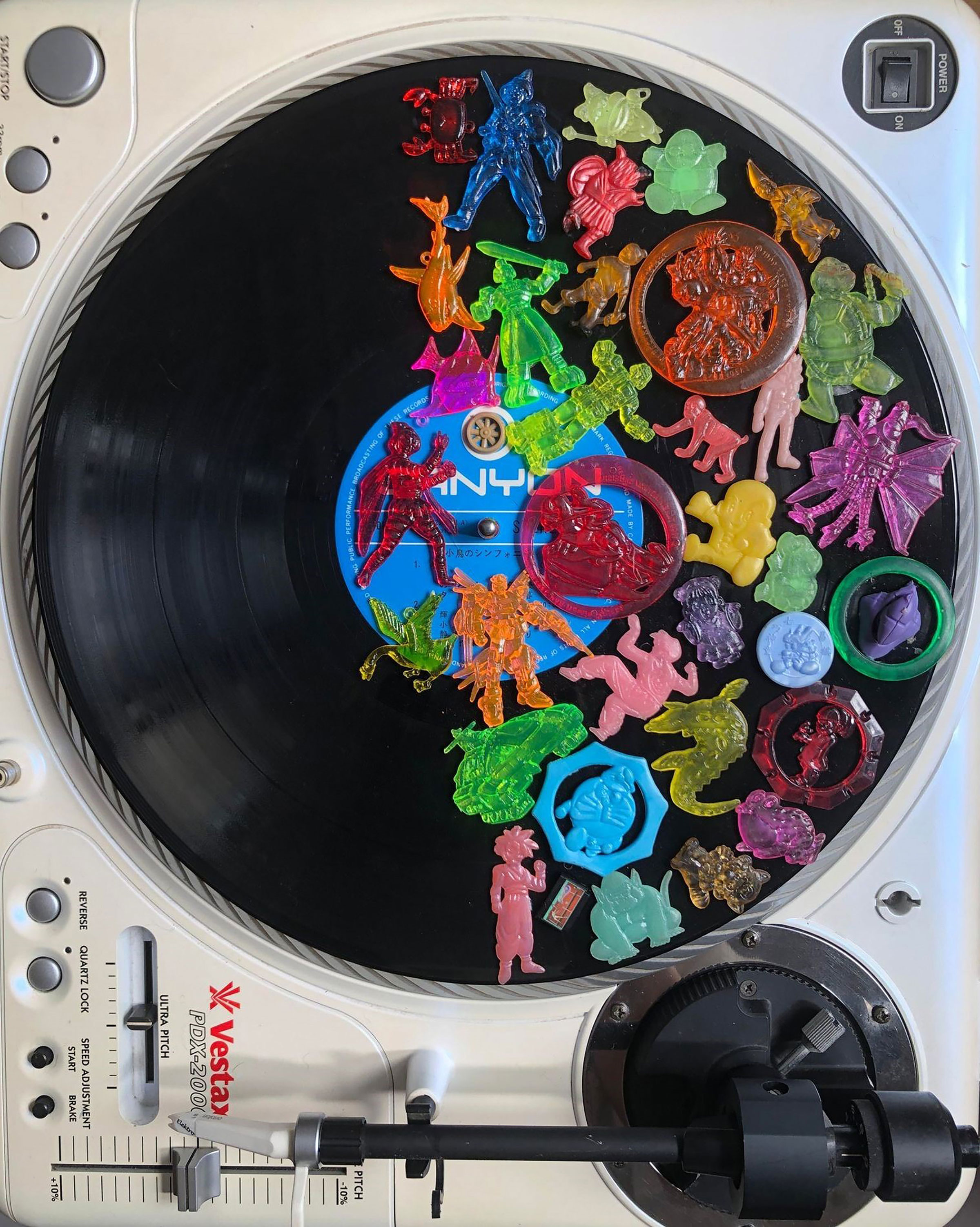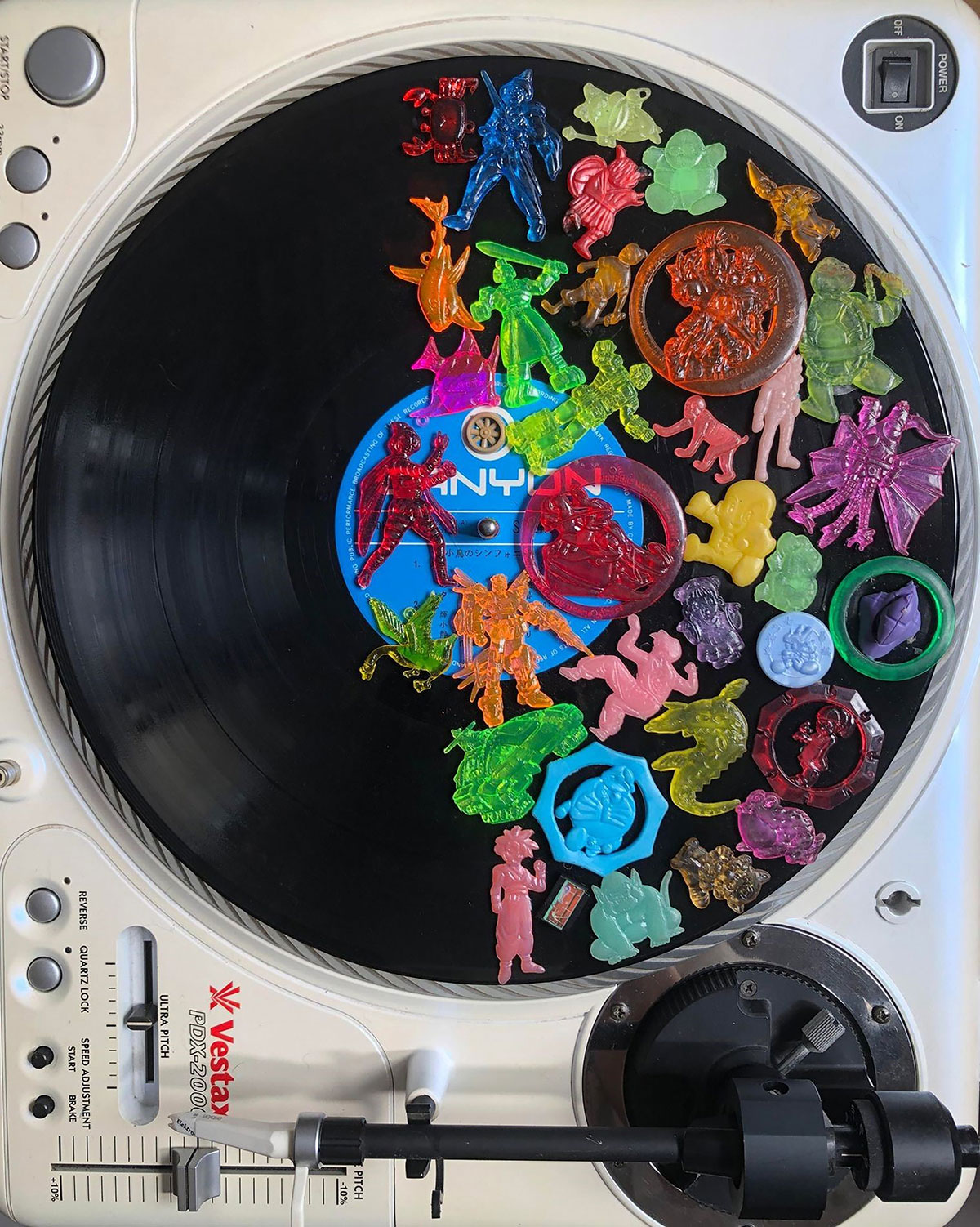DJ Rex CHEN

Spinning phû-lōng-kòng 3
- 2022, turntable installation, 38 × 45 × 10 cm.
- Courtesy of the artist.
Curatorial Perspective
Spinning phû-lōng-kòng is based on the concept of reverberation in a lost space, embodied by bringing sound mixers, used by DJs and normally seen in nightclubs, into a fine arts museum. In such an environment, it is difficult to properly mix or play music, which leads to self-created contradictions. In addition, there are contrasts in the sounds that are broadcast externally from the equipment and those that are produced internally. The outdated atmosphere is equivalent to phû-lōng-kòng (being idle). Drifting outward and facing the external anti-venue and anti-music world, spin to become a device that creates noise and is heard by society.
Creation Description
Spinning phû-lōng-kòng is based on the concept of reverberation in a lost space, as sound mixers, used by DJs and normally seen in nightclubs, are brought into a fine arts museum. In such an environment, it is difficult to properly mix or play music, leading to self-created contradictions. In addition, there are contrasts in the sounds that are broadcast externally from the equipment and those that are produced internally. This equipment is not used to play music. Rather, by incorporating experimental methods, children’s toys that were once popular in Taiwan emit unique but repetitive sounds and multiple turntables are superimposed to create closed loops of layered noise. This is neither a dance space nor an exhibition space. Rather, forgotten toys and neglected space create an atmosphere that is equivalent to phû-lōng-kòng (being idle). Drifting outward and facing the external anti-venue, anti-music world, spin to become a device that creates noise and is heard by society.

